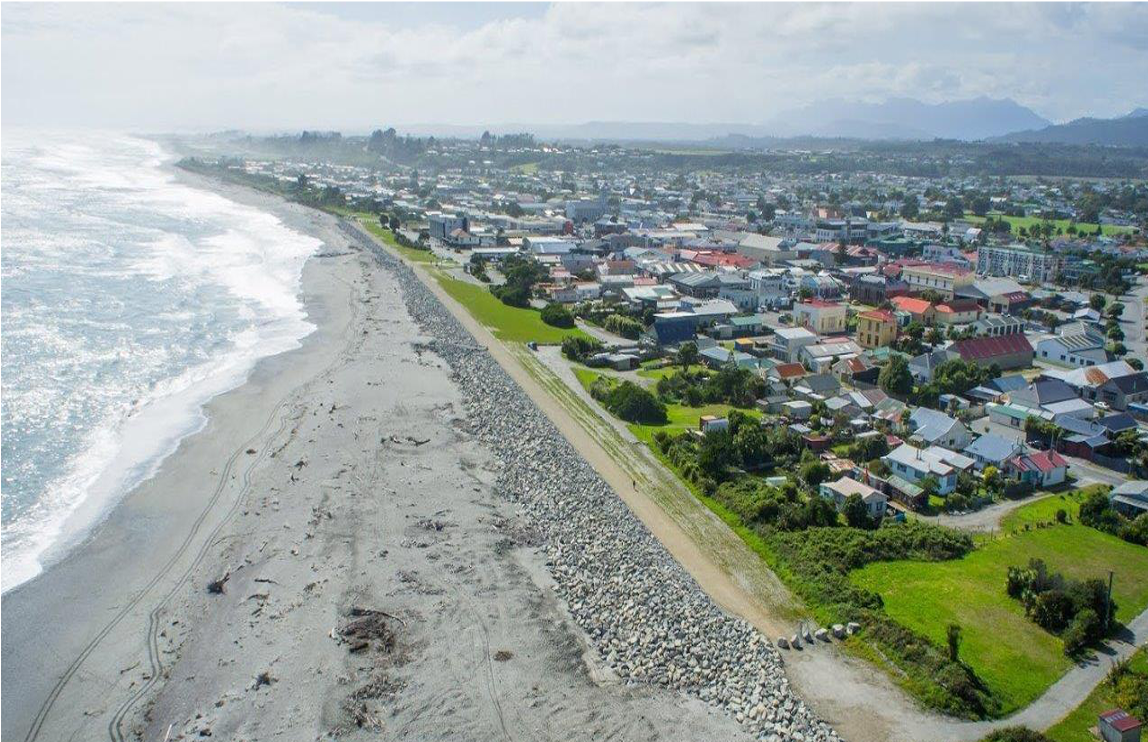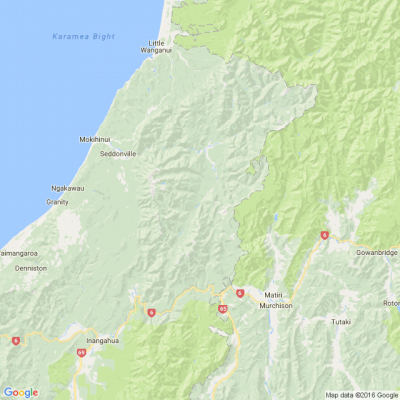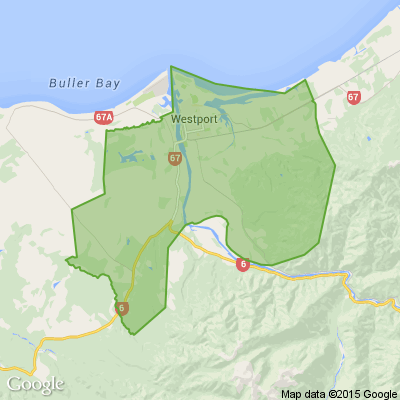Penguin protocol overlooked during emergency rock works
By local democracy reporter Brendon McMahon:
A local penguin trust had to intervene during emergency repairs to a temporary rock buffer, north of the Hokitika seawall, where Kororā are known to nest.
The West Coast Regional Council rockwork buffering the Hokitika Beach headland, behind the Revell Street residential area, was undermined following a storm which hit the region from April 9-12.
The section of beach - between Beach and Hampden streets - was scoured out leaving a rock overhang, which posed a potential fall risk for beach users below, council said.
Acting catchments manager Shanti Morgan said the emergency work in the past 10 days to fix that had included re-positioning rock moved during the recent storm and adding extra material to remediate the worst erosion.
The area is an active habitat for the kororā or little blue penguin, which breeds and moults on the Hokitika foreshore.
Morgan said the council had worked with the West Coast Penguin Trust and the Department of Conservation (DOC).
However, West Coast Penguin Trust manager Inger Perkins said they only became aware of the work after the Kororā habitat in beach head vegetation had been disturbed the day after the work started on April 12.
She said the breeding cycle for Kororā in vegetation on the foreshore was quite broad, meaning the presence of penguin at any time.
"Fundamentally, they could be in their nests at any time of the year."
Perkins said she was disappointed given the trust and the council had agreed protocols around emergency rock work in penguin habitats.
The council's decision on April 12 to start work meant the trust was not on the ground to point out the area is still an active breeding area, she said.
"The decision was made quite quickly without the people being involved who know that."
Perkins said when she became aware of the work the following day she asked the contractor to stop clearing vegetation due to the penguin nesting site.
The contractor was "very responsive".
Perkins said there had been no need to remove vegetation to do the emergency work, based on their previously agreed protocol with council around access to such work areas. The protocol was to construct a ramp to get access down to the beach.
"It was hugely disappointing that all the submissions, all the collaboration with council putting in signs and the GPS (co-ordinates), that none of that had come before those that were making an urgent decision. It is just frustrating ... why isn't this front of view?"
However, Perkins said council had then been "immediately responsive" when the issue was raised.
Morgan said the team considered all adverse environmental impacts prior to works occurring, including assessing the time of year penguins typically nest (July-November).
"Being outside this key season, there is very little penguin presence in the area."
Morgan said the work was completed under emergency consent conditions as a risk to public safety was identified.
"Overhanging rock that could potentially fall on beach users was removed and the site secured, making the best use of onsite material.
"Disturbance of overhanging vegetation was kept to a minimum and only removed what was necessary to ensure public safety."
Meanwhile, a proposal to do further work would be discussed at the first meeting of the Hokitika Joint committee on May 6.
This would detail options for reinstating protection against the coastal hazard.
A long-term solution and advancing a consent application is in train to extend the existing 2013-built Hokitika Seawall north as well addressing coastal inundation on the Hokitika River side.
"A hearing date to be set by the Independent Commissioner is currently pending."

Poll: Should the government levy industries that contribute to financial hardship?
As reported in the Post, there’s a $30 million funding gap in financial mentoring. This has led to services closing and mentors stepping in unpaid just to keep helping people in need 🪙💰🪙
One proposed solution? Small levies on industries that profit from financial hardship — like banks, casinos, and similar companies.
So we want to hear what you think:
Should the government ask these industries to contribute?

-
60% Yes, supporting people is important!
-
25.7% No, individuals should take responsibility
-
14.3% ... It is complicated
A Neighbourly Riddle! Don’t Overthink It… Or Do?😜
Do you think you know the answer? Simply 'Like' this post if you know the answer and the big reveal will be posted in the comments at 2pm on the day!
If you multiply this number by any other number, the answer will always be the same. What number is this?

Have you got New Zealand's best shed? Show us and win!
Once again, Resene and NZ Gardener are on the hunt for New Zealand’s best shed! Send in the photos and the stories behind your man caves, she sheds, clever upcycled spaces, potty potting sheds and colourful chicken coops. The Resene Shed of the Year 2026 winner receives $1000 Resene ColorShop voucher, a $908 large Vegepod Starter Pack and a one-year subscription to NZ Gardener. To enter, tell us in writing (no more than 500 words) why your garden shed is New Zealand’s best, and send up to five high-quality photos by email to mailbox@nzgardener.co.nz. Entries close February 23, 2026.







 Loading…
Loading…





